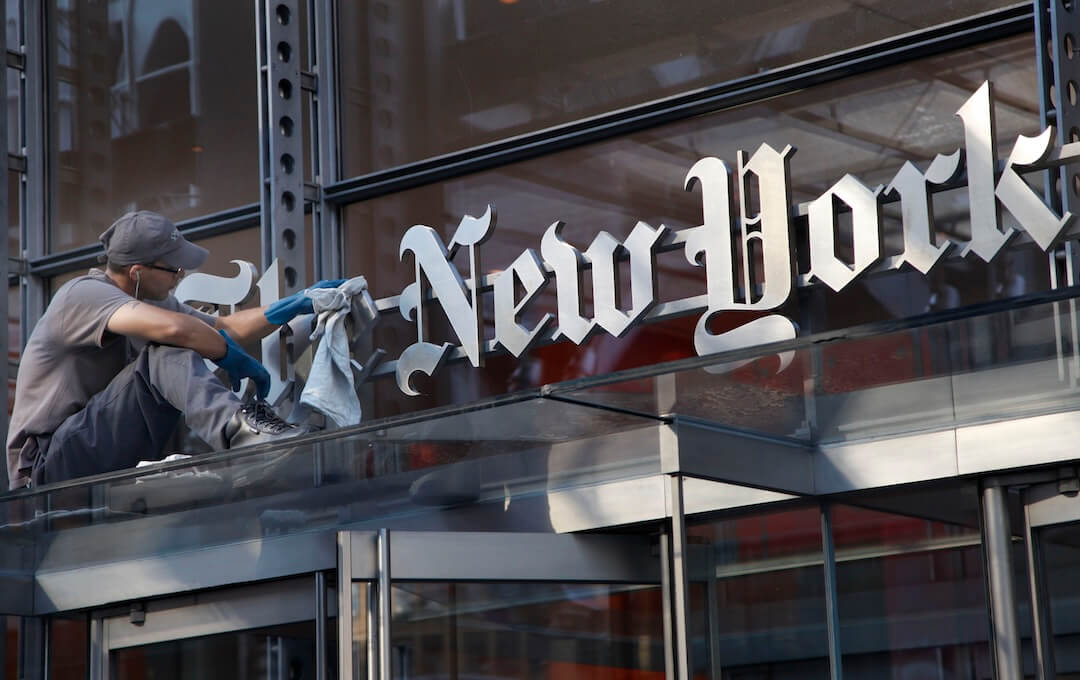It has been difficult to consume all the awful stories coming out of Ukraine over the past three weeks. We woke up Thursday to another horror story when we learned that Russian forces bombed a theater that Ukrainians were using as a shelter. The Russians attacked the building despite the word “children” written in Russian in giant letters in the parking lot — signaling that there were children in the building. The words, written twice, were big enough to clearly be read from planes overhead.
That news came less than 24 hours after Ukrainian President Volodymyr Zelensky gave an impassioned speech to the U.S. Congress. On Thursday, Zelensky gave another stirring speech, this time to German leaders.
In his speech Wednesday, Zelensky struck a chord with his American audience by mentioning Pearl Harbor and 9/11. In Thursday’s much more pointed address to the Germans, Zelensky made a reference to the Holocaust when he said, “After 80 years, something like this happens and I am telling you: Every year politicians repeat the words ‘never again’ and now we see that these words are simply worth nothing. In Europe, a people is being destroyed. There is an attempt to destroy everything that is dear to us.”
He also said, “The world may not have seen so clearly yet, but you are separated from us by a kind of wall. Not a Berlin Wall, but a wall in the middle of Europe between freedom and a lack thereof. And this wall is getting taller with every bomb that falls on Ukraine. With every decision that is not made for peace.”
It’s almost impossible to see everything that is being written and recorded about Russia’s war in Ukraine. And I can understand the sentiment that it grows more and more arduous by the day to absorb it all. Yet, it remains critical.
One of the goals of this newsletter each day is to direct you to some of the very best that journalism has to offer. Later in today’s newsletter, I offer a few media tidbits and other weekend recommendations.
But I start today’s newsletter by highlighting some of the latest insightful reporting and thoughtful analysis when it comes to Russia and Ukraine:
- Top-notch reporting and visuals in The New York Times from Allison McCann, Lazaro Gamio, Denise Lu and Pablo Robles: “Russia Is Destroying Kharkiv.”
- The Wall Street Journal’s Thomas Grove and Stephen Fidler with “How Russia’s Revamped Military Fumbled the Invasion of Ukraine.”
- In an analysis piece for CNN, Angela Dewan with “Putin’s chilling warning to Russian ‘traitors’ and ‘scum’ is a sign things aren’t going to plan.”
- A guest essay in The New York Times from Sophie Pinkham, a writer specializing in Russian and Ukrainian culture, history and politics: “‘They’re Willing to Risk Ruining Their Lives.’ Putin’s War Is Driving Russians Out.”
- Washington Post columnist Dana Milbank with an opinion piece: “Stop buying from these companies. They’re funding Putin’s war.”
- Los Angeles Times op-ed columnist LZ Granderson with “Our divided U.S. should be able to unite for Ukraine.”
- Washington Post columnist Jennifer Rubin with “Russian athletes and artists have moral obligations, too.”
- The Guardian’s Pjotr Sauer talks with Russian socialite and food blogger Veronika Belotserkovskaya for “‘It is not possible to stay quiet’: Putin’s first victim of ‘fake news’ law speaks out.”
- Heidi Levine, a photojournalist working for The Washington Post, talks with CNN about some of her experiences taking photos in Ukraine — including a touching photograph of a zookeeper trying to comfort an elephant rattled by the sounds of explosions.
- Watch this compelling video from actor and former California Gov. Arnold Schwarzenegger to the people of Russia.
Media tidbits, news and other stories to check out this weekend …

U.S. Surgeon General Dr. Vivek Murthy, right, being interviewed by MSNBC’s Hallie Jackson on Thursday. (Photo: courtesy of MSNBC.)
- The Atlantic’s Ed Yong has a new piece out with this ominous headline: “The Coronavirus Funding Collapse Is a Disaster.” And if the headline doesn’t worry you, maybe this paragraph from Yong will: “This week, Congress nixed $15 billion in coronavirus funding from a $1.5 trillion spending bill, which President Joe Biden then signed on Tuesday. The decision is catastrophic, and as the White House has noted, its consequences will unfurl quickly. Next week, the government will have to cut shipments of monoclonal-antibody treatments by a third. In April, it will no longer be able to reimburse health-care providers for testing, vaccinating, or treating millions of uninsured Americans, who are disproportionately likely to be unvaccinated and infected. Come June, it won’t be able to support domestic testing manufacturers. It can’t buy extra doses of antiviral pills or infection-preventing treatments that immunocompromised people are banking on but were already struggling to get. It will need to scale back its efforts to improve vaccination rates in poor countries, which increases the odds that dangerous new variants will arise. If such variants arise, they’ll likely catch the U.S. off guard, because surveillance networks will have to be scaled back too. Should people need further booster shots, the government won’t have enough for everyone.”
- On that topic, U.S. Surgeon General Dr. Vivek Murthy joined MSNBC’s “Hallie Jackson Reports” on Thursday and said, “I think it’s very possible that we will see another wave of COVID. … And we have seen time and time again that a wave that begins in one part of the world often doesn’t stay in that part of the world. And, in many cases, it’s come to the United States. So, we absolutely have to be prepared for that. And we knew that Omicron would not be the last wave of COVID that we saw.” Murthy also raised concerns about not renewing COVID-19 funding, saying, “We are not in a good position right now if we don’t get the additional funding that we need.”
- Meanwhile, Dr. Anthony Fauci appeared on CNN’s “The Lead with Jake Tapper” and said, “We can’t just say we’re done, now we’re going to move on. We’ve got to be able to be flexible because we’re dealing with a dynamic situation.”
- This came out a week ago, but it’s worth your time. A USA Today analysis of the eldercare business shows how pervasive failures escaped notice during the pandemic. It’s Letitia Stein, Jayme Fraser and Nick Penzenstadler with Jeff Kelly Lowenstein: “Dying for Care.”
- Shep Smith, who is now at CNBC since leaving Fox News in 2019 after 23 years, is expected to fill in for Lester Holt as anchor on tonight’s “NBC Nightly News.” CNN’s Oliver Darcy broke that story. It isn’t known if this is a one-time thing or if Smith will be among the rotation of guest anchors used when Holt is out. Smith currently hosts “The News with Shepard Smith” on CNBC each weeknight at 7 p.m.
- For The Marshall Project, Keri Blakinger with: “Do Texas Prison Conditions Violate Human Rights Standards? One Scottish Court Says Yes.”
- Gawker’s Caleb Pershan speaks some truth in “I’m fed up with investigative podcasts that fail to find answers.”
- Keith Olbermann is apparently not returning to MSNBC, but here’s a rather interesting Twitter thread about it from Olbermann himself.
- And, finally, tremendous work as Terrence McCoy, who covers Brazil for The Washington Post, traversed the length of Highway 319 for: “Death in the Forest.”
Have a great weekend, everyone. See you again on Monday.
Have feedback or a tip? Email Poynter senior media writer Tom Jones at tjones@poynter.org.
More resources for journalists
- Bring Poynter to Your Newsroom, Classroom or Workplace or Bring a Poynter Expert to You.
- Covering Political Extremism in the Public Square (Seminar) April 4-13.
- Immigration’s Impact on the U.S. Economic Recovery (Webinar) — April 7 at 2 p.m. Eastern.
- Transforming Crime Reporting Into Public Safety Journalism — May 10-Aug. 2, Apply by April 15.
The Poynter Report is our daily media newsletter. To have it delivered to your inbox Monday-Friday, sign up here.







